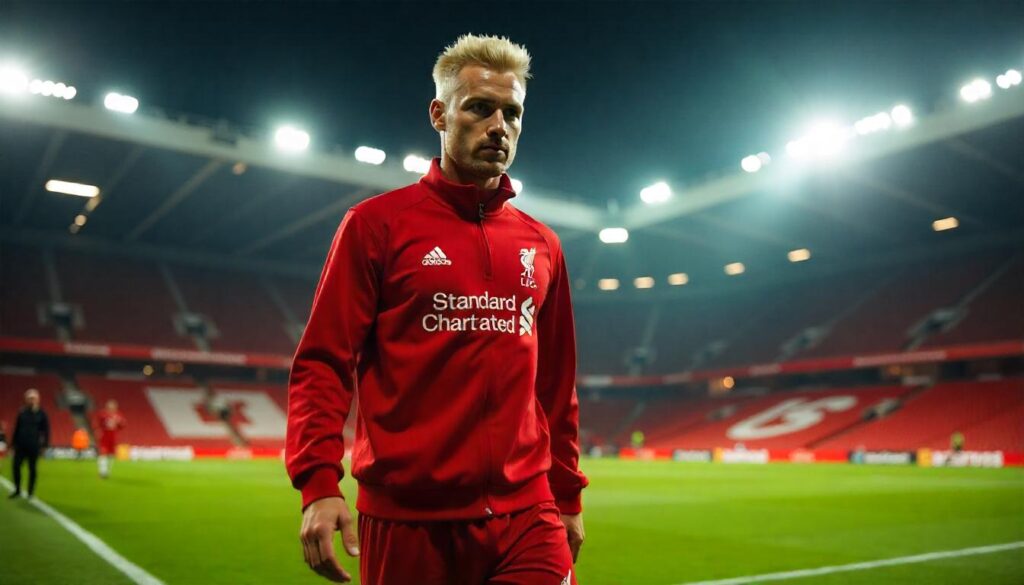Pep Lijnders is a name that has become synonymous with modern football coaching excellence, particularly known for his role as the assistant manager of Liverpool FC. While the limelight often shines on managers like Jürgen Klopp, Lijnders’ influence and tactical ingenuity have played a crucial role in Liverpool’s recent successes. In this article, we will explore the life, coaching philosophy, and impact of Pep Lijnders, tracing how he has become one of the most respected figures in football coaching today.
Early Life and Career Beginnings
Pep Lijnders was born on August 29, 1983, in Tegelen, Netherlands. His passion for football started at a young age, but rather than pursuing a high-profile playing career, Lijnders gravitated towards coaching and tactical analysis. This early focus on the strategic side of the game would shape his future path.
Lijnders’ coaching career began at Dutch club NEC Nijmegen, where he worked with youth players, honing his skills in developing young talent and learning the importance of detailed preparation. He then moved on to roles at PSV Eindhoven and VfL Wolfsburg, gaining valuable experience in both youth and senior team setups. These early experiences were foundational, helping him build a diverse understanding of football cultures and coaching methodologies.
Joining Liverpool and Working with Jürgen Klopp
Pep Lijnders joined Liverpool FC in 2014 as an assistant coach, a decision that would dramatically elevate his career. At Liverpool, he quickly earned the trust of Jürgen Klopp, the charismatic manager known for his high-intensity, “gegenpressing” style of play. Lijnders became Klopp’s right-hand man, playing a key role in developing training sessions, analyzing opponents, and preparing the team tactically.
One of Lijnders’ strengths is his ability to communicate complex tactical ideas in a clear and motivating way. He is renowned for his animated coaching style during training, often demonstrating drills with energy and precision. This approach has helped Liverpool players buy into Klopp’s vision and consistently perform at their best.
Tactical Philosophy and Coaching Style
Pep Lijnders’ coaching philosophy is deeply rooted in teamwork, intense pressing, and quick transitions — hallmarks of the “gegenpressing” style. He emphasizes the importance of collective effort, where every player must be alert and ready to regain possession immediately after losing the ball. This system requires immense physical fitness, discipline, and smart positioning, areas where Lijnders contributes significantly through his training sessions.
Moreover, Lijnders is known for his innovative approach to set pieces and game preparation. He uses video analysis extensively to break down opponents’ weaknesses and tailor Liverpool’s tactics accordingly. His meticulous attention to detail ensures that Liverpool is often a step ahead, whether adapting their defensive shape or exploiting gaps in the opposition’s setup.
Impact on Liverpool’s Success
Pep Lijnders’ influence on Liverpool’s achievements over recent years cannot be overstated. Under the combined leadership of Klopp and Lijnders, Liverpool has transformed into one of the most dominant teams in Europe. The club’s 2018-19 UEFA Champions League triumph and the historic 2019-20 Premier League title — Liverpool’s first league championship in 30 years — are testament to the effectiveness of their coaching partnership.
Lijnders’ role in player development has also been crucial. He has worked closely with emerging talents like Trent Alexander-Arnold, helping shape their understanding of the game and their tactical roles. His ability to connect with players on an individual level makes him a respected figure in the dressing room.
Beyond Liverpool: Leadership and Future Prospects
While Pep Lijnders is primarily known for his work at Liverpool, he has also gained recognition as a potential future head coach. His tactical knowledge, man-management skills, and modern training methods have drawn interest from clubs around Europe. Lijnders briefly took charge of Liverpool’s first team for a few matches during Klopp’s absences, showcasing his ability to lead at the highest level.
Many football pundits believe that Lijnders is destined for a top managerial role, possibly within the next few years. His progressive mindset, combined with his experiences under Klopp, makes him well-equipped to handle the pressures of modern football management.
Personal Traits and Leadership Style
Lijnders is often described as passionate, meticulous, and approachable. His energetic personality helps motivate players and staff alike. Unlike some coaches who rely solely on authority, Lijnders builds relationships through respect and communication. His open-door approach encourages players to discuss issues and ideas, fostering a positive team environment.
Furthermore, Lijnders is known for embracing technology and innovation in coaching. He uses data analytics, video breakdowns, and other modern tools to enhance performance, staying ahead in a sport that increasingly values scientific approaches.
Conclusion
Pep Lijnders may not always be in the spotlight, but his contributions to Liverpool’s recent golden era are undeniable. As a tactician, motivator, and developer of talent, he embodies the qualities of the modern football coach. His journey from the youth setups of the Netherlands to the pinnacle of European football illustrates the importance of dedication, learning, and collaboration.
As Liverpool continues to compete at the highest level, Pep Lijnders remains an essential part of the team’s backbone. Looking ahead, his name is sure to become even more prominent as he potentially steps into bigger leadership roles in the football world. For fans and aspiring coaches alike, Pep Lijnders represents the future of intelligent, passionate, and progressive football management.


